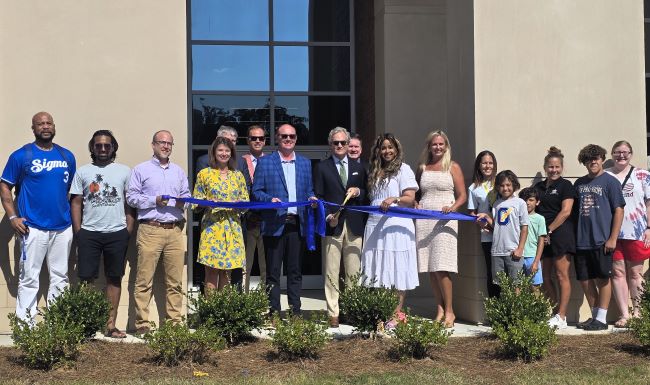As technology advances, politics and law retreat
Published 1:30 pm Wednesday, April 11, 2018
The speed at which information is available is difficult to comprehend. Like magic, an e-mail, text or breaking news appears on our devices in a second or two.
Intel co-founder Gordon Moore noted in 1965 that every two years, the number of transistors per square inch on integrated circuits doubled. “Moore’s Law” has since been broadened beyond semiconductors to encompass accelerating breakthroughs in digital electronics, memory capacity, sensors, A.I. and other fields. The point of Moore’s Law is that technology is advancing at an exponential rate.
Unfortunately, Moore’s Law applies only to technology.
Trending
Non-technology, soft disciplines — our legal and political systems — move glacially, like they always have.
This dichotomy creates a frustrating disconnect. In the hyperkinetic world of science and computers, all things seem possible. In the chronically vague and inexact world of law and politics, nothing can get done.
For example, in the cornucopia of scandals swirling in Washington D.C. these days, we’ve seen that government or private technicians can recover emails and electronic communications between FBI and DOJ investigators, politicians and government employees that the senders and recipients tried to delete or destroy.
However, Congressional committees investigating official wrongdoers are seemingly unable to force the DOJ and FBI to turn over non-redacted communications to which Congress is legally entitled as part of its oversight obligation. Congress has the right to the information, technicians can recover it, but DOJ and FBI dither and obfuscate, ignoring requests and subpoenas.
In the world of technology, it seems nothing is delayed. Enhancements pop out at us from all directions. In the world of law and politics, everything is delayed; nothing is certain.
Here’s a challenge: name one “advance” in the world of politics and law. Stated another way, does anything think our legal or political systems have improved in the last ten years? Twenty years?
Trending
Technology, math and science are precise, objective. Law and politics are subjective disciplines. Nothing is cut and dried. There are always qualifiers, explanations and extravagant excuses.
In criminal cases, investigative tools have never been more effective. Astonishing enhanced DNA science can convict or exonerate with less physical evidence than ever before. Cell phone recovery technology enables law enforcement to track the exact whereabouts of offenders at the time of the offense. Cameras on our streets and satellites capture irrefutable evidence of criminals in the act.
Yet this powerful, direct evidence must be submitted to fact-finders and decision-makers operating within legal and political systems put in place centuries ago, systems that have changed little over time. The results are predictable.
IRS lawyer/bureaucrat Lois Lerner was caught red-handed in 2013 denying tax-exempt status to conservative groups. The evidence was put through the DOJ and Congressional meat grinder and four years later, in 2017, Attorney General Jeff Sessions confirmed his predecessor’s decision not to prosecute.
Nidal Hasan murdered 13 and wounded 30 in 2009 at Fort Hood in front of scores of witnesses. There was no question about his guilt. Four years later, Hasan was convicted and sentenced to death. Eight years later, Hasan’s attorney continues to file appeals to overturn the verdict.
The Hillary Clinton campaign and the Democratic National Convention paid for a phony dossier. It was compiled by a shady ex-British spy who disliked Trump and never set foot in Russia to gather evidence. The dossier was used by people inside FBI and the Department of Justice, Comey, McCabe, Rosenstein and others, resulting in the appointment of Special Counsel Robert Mueller. Mueller hired lawyers who were HRC donors and supporters to go to great lengths to prove Russian “collusion” by the Trump campaign.
After a year of intense scrutiny with cutting-edge technology, the special counsel have produced not one iota of evidence. Sadly, it is clear this zombie investigation will continue beyond the 2018 Congressional elections to achieve maximum political impact.
For the foreseeable future, technology will continue to come at us with a bang — law and politics with a whimper.
Michael Henry writes in Oxford and can be reached at mhenryauthor@gmail.com.





